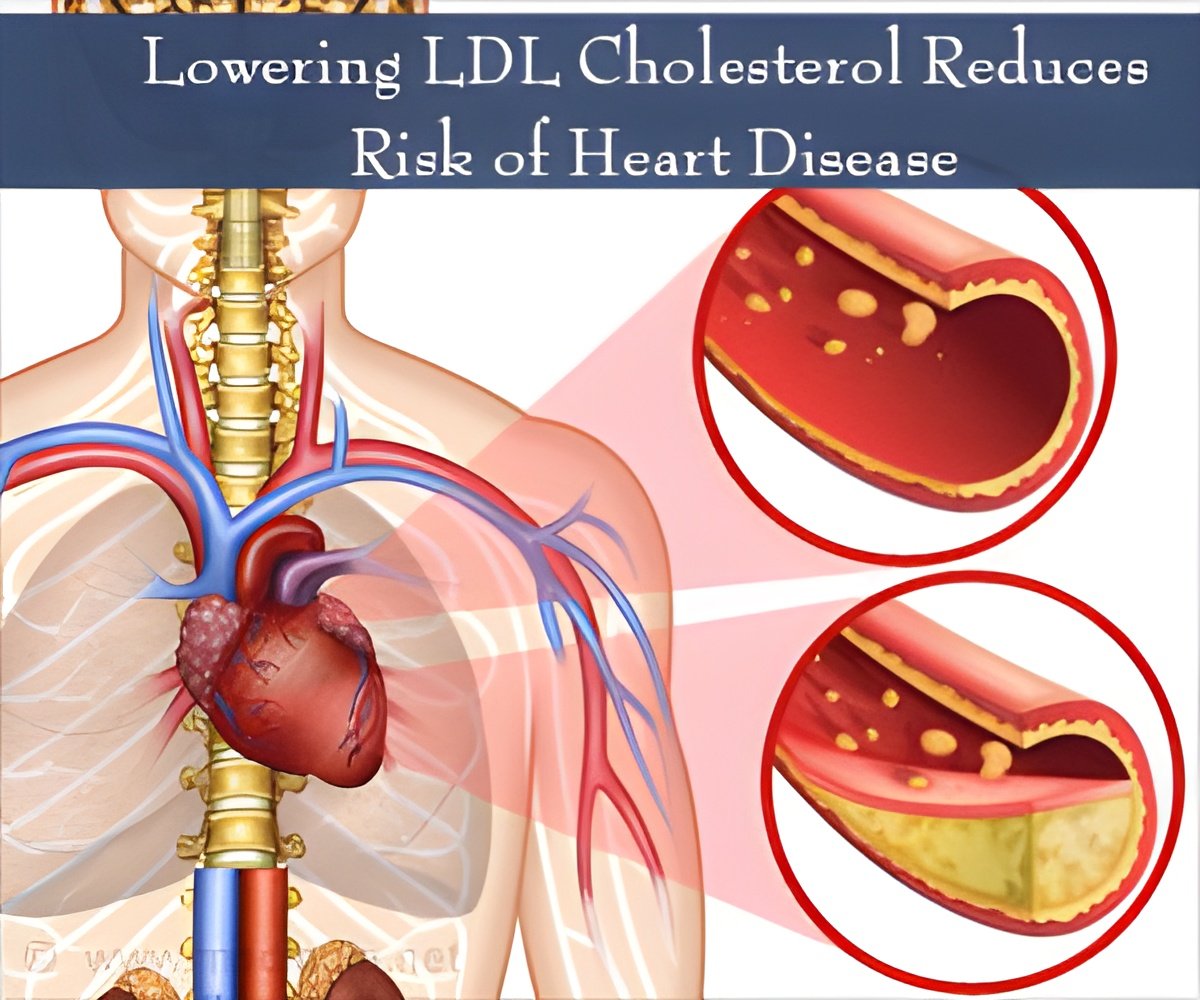PCSK9 inhibitors used in lowering LDL cholesterol (bad cholesterol) may reduce heart disease risk. Higher lipoprotein(a) levels are associated with an increased cardiovascular disease risk. Cholesterol- lowering evolocumab treatment can effectively reduce lipoprotein(a) concentration.

‘PCSK9 inhibitors used in lowering LDL cholesterol (bad cholesterol) may reduce cardiovascular disease risk. High lipoprotein(a) levels are associated with an increased risk of developing heart disease. Cholesterol- lowering evolocumab treatment can effectively reduce lipoprotein(a) concentration.’





Atherosclerosis patients with higher baseline lipoprotein(a) levels have a 26 percent greater risk of coronary death from heart attack than patients with the lowest lipoprotein(a) levels. To date, there have been limited therapies available that can effectively reduce lipoprotein(a) levels and reduce the risk of cardiovascular events.In the latest analysis from the FOURIER (Further Cardiovascular Outcomes Research With PCSK9 Inhibition in Subjects With Elevated Risk) trial, researchers found that PCSK9 inhibitors reduced lipoprotein(a) levels and that patients starting with higher Lp(a) levels appeared to derive greater absolute benefit from taking PSCK9 inhibitors. Their results were reported at the 86th Annual Congress of the European Atherosclerosis Society.
"In addition to its effects for reducing LDL cholesterol, PCSK9 inhibition may emerge as an important option for patients with elevated lipoprotein(a) concentration," said first author Michelle L. O'Donoghue, MD, of the Department of Cardiovascular Medicine at Brigham and Women's Hospital. "We have identified a therapy, evolocumab treatment, that effectively reduces lipoprotein(a) concentration."
The FOURIER trial was a randomized, double-blind, placebo-controlled trial, which evaluated adding evolocumab to the treatment regimen in over 27,000 patients with high LDL cholesterol levels.
Evolocumab was found to significantly reduce Lp(a) levels and reduce the risk of cardiovascular events. Patients with the higher baseline lipoprotein(a) levels benefited the most from evolocumab treatment, with a 24 percent decrease in the risk of heart attack, stroke or cardiovascular death. Patients with lower baseline lipoprotein(a) levels had a 15 percent reduction in risk with evolocumab treatment.
Advertisement
Source-Eurekalert















